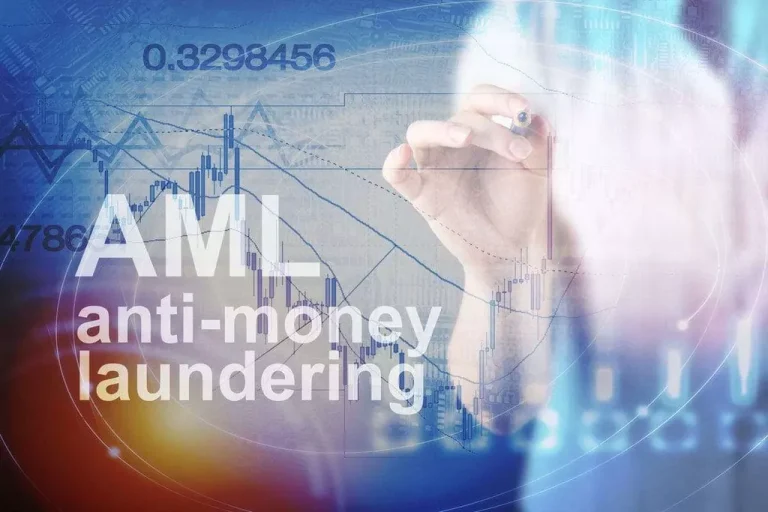Cross Border Payments In India 6 Current Challenges
Blockchain’s most impactful use in finance is its ability to determine trust efficiently via smart contracts. These digital agreements are excellent for situations where exact outcomes are essential, corresponding to investment agreements. Here, contracts mechanically execute as soon as the blockchain network verifies all predetermined situations, guaranteeing compliance with terms like funding thresholds and share allocations. Blockchain as a distributed ledger is a shared database within the blockchain community that stores transactions. Smart contracts automate these processes, reducing the risk of fraud and errors and ensuring that transactions are accomplished faster and extra securely. Banks will also benefit from blockchain Blockchain Payments with transparency and traceability.
- Here are the main 5 challenges of implementing blockchain in banking and offering solutions to beat them.
- Here are real-world examples of how blockchain is being implemented within the banking sector.
- The new trendsetters in cross-border funds are international locations from North America, Latin America, Asia, and Africa.
- It also forces the banks to handle liquidity wants as a result of large quantities being transmitted.
A Guide To How A Payment Is Accomplished On The Blockchain And The Crypto Cost Experience
Private keys are what you should access and spend any funds that have been sent to your public address. A personal key is like a pin quantity; in the wrong arms, somebody can take everything you own. Depending on the community used, the public tackle either stays the identical (in the case of Ethereum), or adjustments for each transaction (in the case of Bitcoin). In addition, every transaction receives a novel transaction hash that serves as a proof that a transaction was validated and added to the blockchain. Finally, each country has its own currency, which suggests exchange charges must be calculated.
Licensed Investment Banking Operations Professional
While governments are trying their finest to safeguard the interests of their citizens, the blockchain expertise powering these currencies have to be preserved. When somebody makes a buy order, there’s a system that carries the money from the buyer’s account to the merchant’s account. International transactions require a change of foreign money, foreign transaction charges and coping with an exchange price. To navigate through these channels, a banking system ushers the cash along. In regular cross-border funds, monetary establishments comply with knowledge privateness rules. The move of clients’ info across numerous jurisdictions – may be prevented simply by utilizing blockchain know-how for cross-border payments.
Financial Providers And Capital Markets

Another beneficiary of blockchain’s application in cost techniques is India’s microfinance sector, which serves millions of low-income individuals. Microfinance establishments leverage the technology to effectively manage their operations, scale back administrative costs, and be certain that loans are disbursed and repaid transparently. This not only improves the sustainability of microfinance institutions but also empowers the underprivileged by offering entry to monetary services. We are on the forefront of harnessing the facility of blockchain to build, scale and commercialise the digital options panorama. To sum it up, though there are certain challenges with utilizing blockchain expertise for cross-border payments, its potential advantages far outweigh these drawbacks. The introduction of blockchain has revolutionized how folks conduct businesses and make payments.
We’ll explore how they operate, their advantages, and the longer term they’re influencing on this article as we delve into the fascinating world of cross-border payments and transfers supported by digital currencies. Cross-border payments are very important to individuals, businesses, retailers, industries, and worldwide growth organizations. However, cross-border transactions are often inconvenient because of their exorbitant fees and lengthy processing occasions. The use of blockchain in cross-border payments will make the complete process simpler.
Implementing blockchain in banking enhances safety, reduces transaction costs, and will increase effectivity by eliminating intermediaries. It enables sooner cross-border funds, ensures information integrity with immutable information, and combats fraud. Blockchain also helps transparent, real-time processing, making banking operations more streamlined and trustworthy for each establishments and prospects. The main rea-son to use these features is to make this utility more cost-effective and to avoid any risk during the monetary transactions. The platform supplies some belief to the users making up to the inefficiencies of the cross-border funds and improving the options for the longer term improvement of this platform. This project explains about the blockchain technology in finance, where the users can easily access the net interface and make their transactions in safer method.

Historically, banking and financial establishments facilitated cross-border funds, which incessantly concerned a complex community of intermediaries, similar to correspondent banks and clearing houses. This can result in high transaction charges, longer processing durations, and an opaque cost course of. Fintech firms are revolutionizing cross-border payments by leveraging technology and innovation.

� Verification takesplace to ensure user have sufficient funds in user�s account, and if essential,a currency conversion will take place. This applies solely if you’re sending USDto an account that accepts a unique currency and the payee has requested adifferent forex. Bothdomestic and worldwide cost processing entails seven steps. � Most of them are absorbed by financial institution fees, whichare more costly than some other a half of the transaction. � Cross-border payments are transactionssent from one nation and received in a unique nation.
The world financial system will get an uplift by using blockchain know-how for cross-border funds. Blockchain know-how is a distributed ledger system that makes use of cryptography to store data securely in a decentralized method. It enables customers to securely transfer digital assets from one party to a different with out the necessity for intermediaries or third events.
Blockchain in cross-border funds is increasing day-to-day due to many shortcomings within the conventional methods. Blockchain expertise will depart a profound influence on cross-border funds construction. It can be a technological breakthrough as there is a gradual weakening of the prevailing payment models. We are certain that it will depart an general optimistic impression on cross-border funds. Banks need to take the help of intermediary banks to process the transaction.
There has by no means been a larger demand for effective and economical cross-border cost options in our linked world. Here come digital currencies, the ground-breaking financial instruments which are revolutionizing international financial transactions. The world of cryptocurrencies is opening up a brand new frontier in the field of worldwide banking, with faster transactions and lower prices.

Now, government organizations are steadily deploying blockchain technology to handle monetary settlements, improve current authorized frameworks and grant disbursements. With non-custodial wallets, the user has the non-public key, and subsequently ownership of the coins. But in the event that they lose the private key, they’re unable to entry their crypto.
Read more about https://www.xcritical.in/ here.
Posted in: FinTech
Leave a Comment (0) ↓